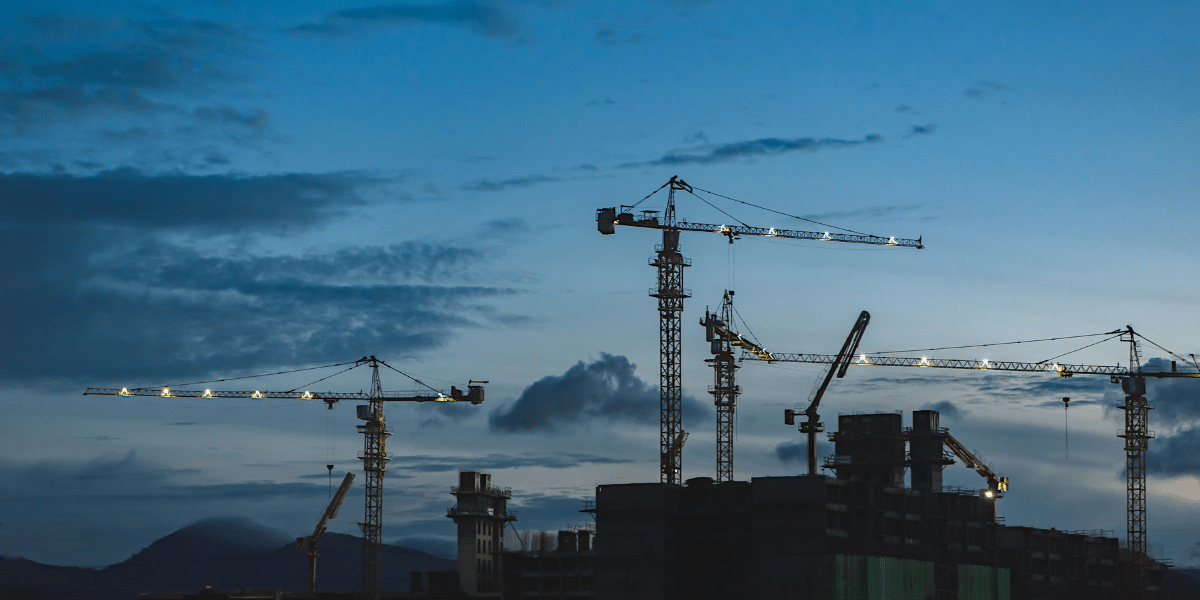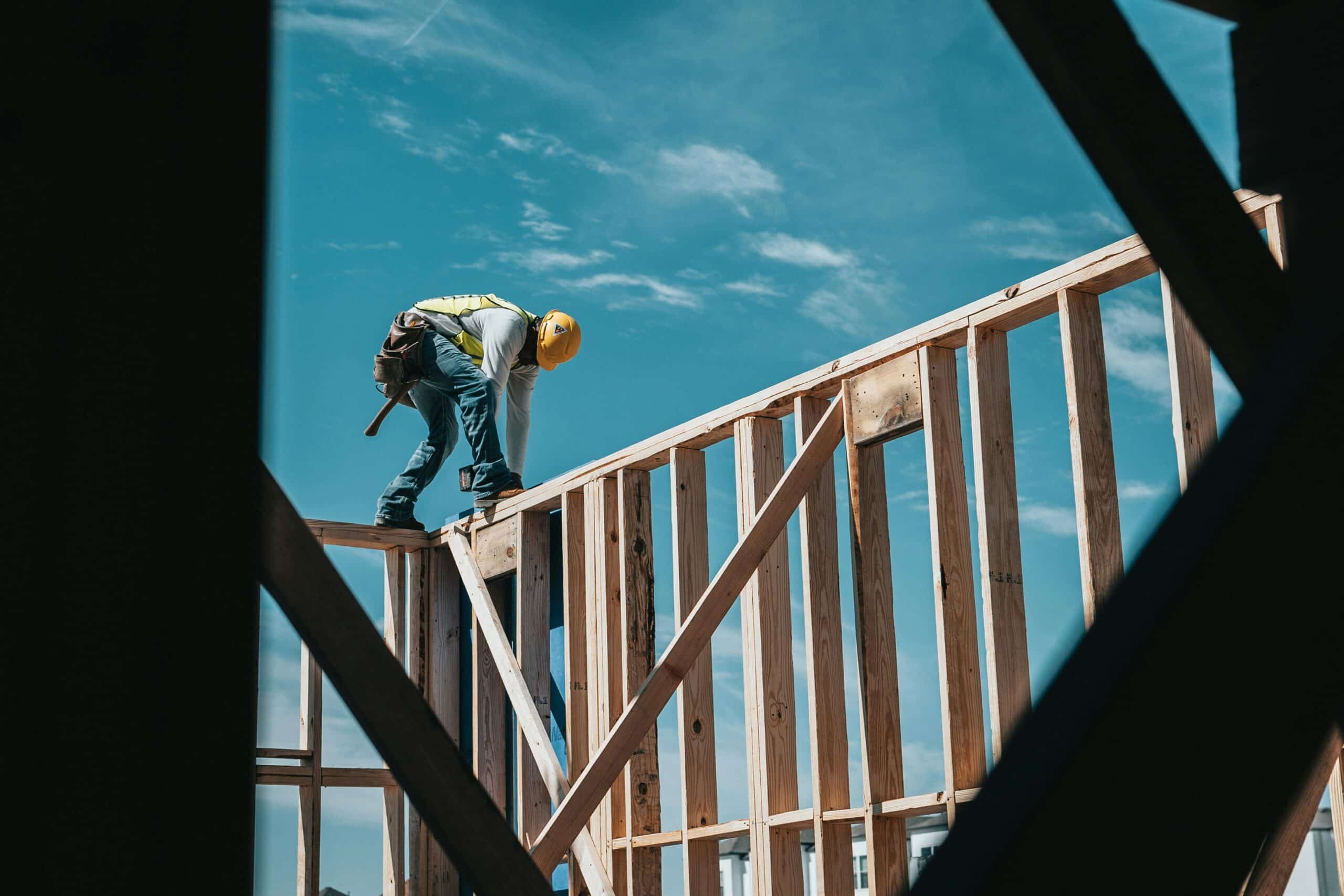Table of contents
Whether you're planning to build a new commercial property or undertake a major renovation of an existing space, securing a construction loan can be a crucial step in achieving your business objectives.
Construction loans are designed to provide financing for the myriad costs associated with building projects, from labor and permits to other construction-related expenses. But how do you qualify for a commercial construction loan, and what are some things that you can do to get better terms?
In this article, we will take you through the details of getting a construction loan for your business, from providing an in-depth explanation of how they work to giving you our expert tips as leaders in the business loan industry.
What Are Commercial Construction Loans?
Commercial construction loans are short-term financing loans that you can use to cover the cost of building or renovating your commercial property. The funds are typically dispersed in stages, and once the construction is completed, they can be converted to a standard mortgage.
In order to qualify for a commercial construction loan, you need to get a good understanding of what this type of financing is, and what are its key characteristics. Let’s take a deeper look into the main features of a business construction loan:
- Short-term - As opposed to regular business loans, construction loans are usually short-term (between 1 and 3 years), lasting only during the construction phase.
- Strict criteria - Because new projects are often considered more risky, lenders have stricter qualification requirements, including a budget, a timeline, and a detailed project plan.
- Staged funding - Instead of a one-time lump sum, commercial construction loans disburse the funds in stages upon the completion of different phases.
- Interest-only payments - During the construction period, you are only required to pay the interest on the portion of the loan that has been disbursed, which usually makes the monthly payments lower.
- Higher interest rates - As opposed to traditional long-term mortgages, commercial construction loans have higher interest rates due to the higher risk associated with them.
- Permanent financing - A lot of construction loans can be converted into a standard mortgage once the construction has been completed. They are also known as construction-to-permanent loans.
- Collateral and down payment - This type of loan typically requires the project itself as collateral, as well as a significant down payment, before the beginning of the project.
How to Qualify For a Construction Loan: 5 Expert Tips
If you are looking to get a construction loan, there are a few important things that you need to know so you can make a well-informed decision, as well as score better rates and conditions.
Here are some of our expert tips on how to qualify for a commercial construction loan:
1. Understand what commercial construction loans cover and don’t cover
Before you apply for a commercial construction loan, you need to have a good understanding of the aspects that the loan covers - as well as the ones it doesn’t.
This will ensure that you are financially prepared for all the costs associated with your real estate endeavor. It will also give you an idea of how much of your own financing you may need in order to complete the project and meet your business objectives.
Commercial loans cover:
- Acquisition of land
- Construction materials and labor
- Costs for necessary permits
- Inspection fees and other regulatory costs
- Contingency reserves
- Architect and design fees
- Appraisal and inspection fees
- Construction machinery and equipment
- Renovations
- Interest reserves
- Landscaping and appliances
- Closing costs
- Subcontractor fees
- Permanent fixtures
- Risk insurance
- Commercial external displays
Commercial loans don’t cover:
- Marketing and advertising
- Unapproved expenditures
- Costs of decoration and furniture
- Off-site infrastructure improvements
- Inventory purchases
- Personal expenses
- Certain types of insurance
- Long-term business expenses
- Legal fees unrelated to construction
So, if you are looking to secure a commercial construction loan, it is extremely important to understand the specific expenses that you can get from this type of funding.
Otherwise, you risk having financial gaps during the construction phase which may slow down the project and result in overall higher business costs.
2. Have a strong business plan
As we mentioned earlier, commercial construction loans are typically considered riskier than standard loans because of possible delays, cost overruns, as well as other unforeseen challenges.
In addition, the loan is based on the projected value of the completed project, which may not materialize as expected due to the constantly changing market conditions.
For this reason, if you want to qualify for a commercial construction loan, you need to be prepared to show a strong business plan to your preferred lender. This way, you can demonstrate the viability and potential success of your project.
A good plan should encompass some of the following aspects:
2.1. Executive summary
Present a concise overview of your business and project - it should be no longer than 1 or 2 pages, but it must capture the essence of your construction plan and your goals. What does the construction project entail? What are the objectives that you aim to achieve?
And most importantly, what are the strategies that you plan to put in place in order to achieve these objectives? Make sure to highlight the market opportunity you have identified and how your project stands out from existing offerings.
2.2. Market analysis
In order to qualify for a commercial construction loan, we highly recommend including a thorough analysis of the market in which you will be operating. What are the market trends that you have discovered?
Include your target demographics, competition analysis, and how the project fits into the current market landscape. This will make your business plan stronger and will show the lender that you have done your due diligence properly.
2.3. Detailed project description
Clearly outline the specifics of your construction project, including location, size, type of construction, design elements, as well as the purpose of the commercial property - for example, a retail space or an office building.
Provide details about the design and architectural plans, including style, layout, and square footage. In addition, including the types of materials, technologies, and construction methods that you are planning to implement will be highly valuable.
Include a realistic timeline for the project, from the start of construction to its completion and when the business will begin operations (if applicable).
2.4. Financial projections
If you are wondering how to qualify for a commercial construction loan, another thing you will have to keep in mind is that you should be able to provide financial projections in your business plan. This includes the expected costs of the project, as well as revenue projections and break-even analysis.
This step is very important because it will show lenders that you have thoroughly thought through the financial aspects of your project and you have a plan to repay the loan.
2.5. Risk assessment
When preparing your business plan, make sure to address potential risks that you may experience along the way, as well as the strategies that you are planning to put in place in order to mitigate them.
This includes risks associated with the construction, market risks, as well as financial risks.
3. Maintain a good credit score
If you want to qualify for a commercial construction loan successfully, having a good credit score is absolutely essential. This will not only improve the likelihood of loan approval but may also help you secure lower interest rates and better loan terms.
In addition, a good credit score can increase the amount you're eligible to borrow, which is crucial for large-scale projects like commercial construction, where the costs can be substantial.
To build a strong credit profile:
- Consistently pay all your bills on time
- Keep your credit utilization low, ideally below 30% of your available credit
- Check your credit reports regularly for errors and inaccuracies
- To avoid lowering your score temporarily, limit new credit inquiries
- Keep older accounts open and active as they contribute to a longer credit history
- Improve your debt-to-income ratio by paying down existing debts
- During the loan application process, avoid making significant financial changes
- Build a strong payment history by paying your creditors and suppliers on time
- Establish a credit account with suppliers if possible
- To track your business’ financial health accurately, keep business & personal finances separate
4. Bring an experienced construction team to your project
If you want to influence the lender’s confidence in your project, we highly recommend that you bring on board an experienced construction team of architects, contractors, and builders. This indicates that your project is being managed by professionals, increasing the trustworthiness of the successful completion of the project.
So, if you want to qualify for a commercial construction loan, don’t underestimate the importance of this step. Working with a construction team with a history of successful projects not only provides evidence of their capability to deliver, but also that you will stay within budget and complete the project on time.
A seasoned and skillful team is also better equipped to anticipate and manage risks (reducing the risk for the lender), provide compliance and quality assurance, and ensure efficient project and cost management.
Last but not least, a construction project executed by a top-notch team may also have greater appeal in the market, which is an important consideration for lenders focused on the project's long-term viability and success.
5. Provide a detailed budget for your commercial construction loan
Last but not least important of our expert tips on how to qualify for a commercial construction loan is to provide a detailed budget for your project.
Bringing a comprehensive cost breakdown to your lender is key for securing a construction loan as it demonstrates the financial viability of your project.
This includes, but is not limited to:
- Labor costs, including wages for workers and fees for contractors
- Material costs based on quotes or standard industry costs
- Insurance and bonding costs to assess risk management
- Project management costs in case you are hiring a project manager
- Site preparation costs, from clearing and excavation to grading
- Quotes and estimates from suppliers and contractors
- Costs related to permits and fees, including building permits and inspection fees
- Contingency funds to cover unforeseen expenses or overruns
- Design and engineering fees for your architects, engineers, and designers
When presenting your detailed budget, make sure to align it with a detailed project timeline, showing when each expense will be incurred. This helps in demonstrating effective allocation and management of budget throughout the project, enhancing your credibility.
Applying For a Commercial Construction Loan
If you are looking for the right lender for your commercial construction loan, look no further than National Business Capital. With $3+ billion financed since 2007, multiple awards, and an experienced team of Business Finance Advisors, we have everything you need to find the best financing options for your project.
Are you ready to get started? Apply here.






